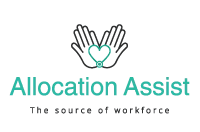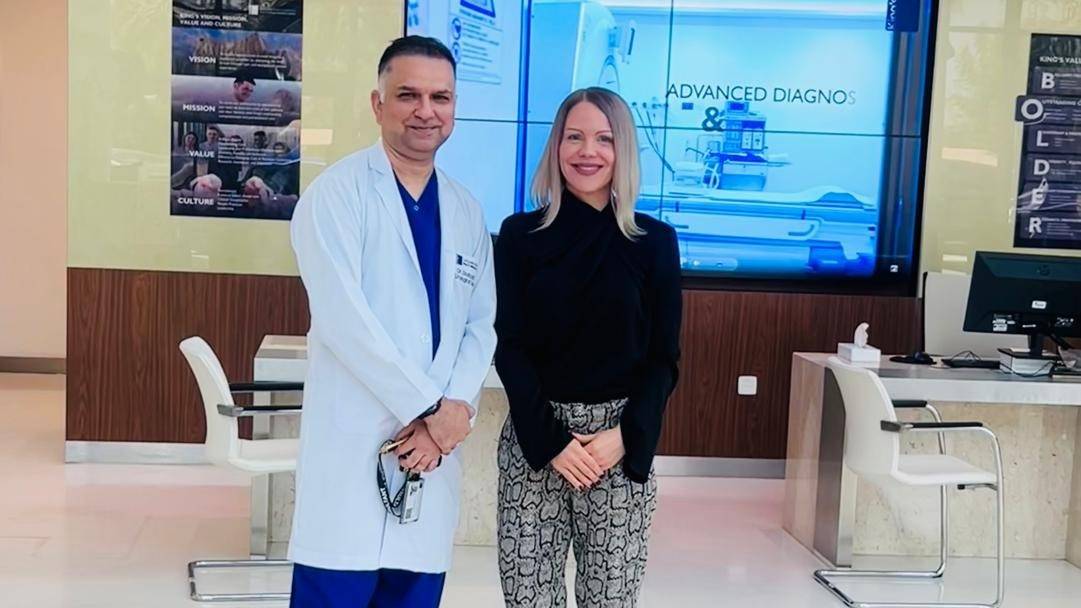Dr. Shahzad Shah is a UK-trained consultant urologist with nearly two decades of experience and expertise in diagnosing and treating both benign and malignant urological conditions. His subspecialty areas of interest are functional and female urology, the management of prostate-related conditions, and disorders of urinary flow.
Dr. Shahzad is passionate about both teaching and clinical research and has numerous publications. Dr. Shahzad is a Fellow of the Royal College of Surgeons of Edinburgh, the Intercollegiate Board in the UK, and the European Board of Urology.
In October 2023, Dr. Shahzad brought his skills and experience to King’s College Hospital London in Dubai. He is also continuing his passion for teaching and mentoring junior doctors in his role as adjunct clinical assistant professor of urology at Gulf Medical University.
At Allocation Assist, we keep in touch with our doctors and always love to hear about their experiences and achievements. It was great to talk to Dr. Shahzad in between his busy schedules.
Can you start by telling us about your training and why you decided to specialize in urology?
I graduated from the Army Medical College, a prestigious armed forces medical school in Pakistan. College offers one of the best medical training courses in the country. After graduation, I was required to work in the field for a few years before applying for specialist training. At that time, I knew that I wanted to do surgery, although I was not sure about which particular specialty.
I did my general surgery training in Pakistan before moving to England to complete the UK General Surgery Fellowship. During this time, my trainer and mentor was a lovely urology consultant who was an inspiration to me. Also, in 2005, while working in the aftermath of a massive earthquake that affected Pakistan and the surrounding region, I met a urologist from the UK, Professor Shamim Khan (now OBE), who encouraged me to apply for specialist urology training.
I trained in London and the southeast of England, working at Guy’s & St Thomas’ and Medway Maritime Hospitals NHS Trust. In 2012, I started a fellowship in Functional and reconstructive urology at St. James University Hospital, Leeds. During my training, I had excellent teaching and mentorship from some of the leading urologists in the UK, in particular, Professor Shamim Khan, Ian Eardley, and Neil Harris.
Followingthe completion of my consultant training and successfully being accepted onto the specialist register of the GMC, I was appointed as a consultant urological surgeon at Southend University Hospitals NHS Trust and subsequently at West Herts Teaching Hospitals NHS Trust in 2014. At West Herts, I led the urology core functional and female urology and urodynamics unit and was also the departmental lead for governance and risk.
What are your particular subspecialty interests?
My training and experience enable me to address a wide array of urological conditions, ranging from urinary tract infections to complex urological surgeries. My subspecialty fellowship in Leeds was in functional urology and urodynamics, focusing on bladder dysfunction that may cause difficulty in either passing or retaining urine.
One of my special interests is in female incontinence and the treatment of prostate-related issues in men. I also bring with me expertise in a relatively new, minimally invasive surgical treatment for benign prostate enlargement called Rezūm steam therapy. This uses the natural energy found in steam to shrink the prostate while minimizing any effect on surrounding tissues.
Rezūm therapy involves injecting bursts of sterile steam targeted to shrink enlarged areas of the prostate and therefore reduce pressure on the urethra to improve urinary flow. This procedure has been shown to be very successful in reducing the need for either surgery or medication with the associated side effects.
Why did you decide to come and work in Dubai, and King’s College Hospital in particular?
Working in Dubai gives me the opportunity to visit family in Pakistan, particularly my mom, who is facing some health issues. After many years working in the NHS, I was seeking a change and a new challenge, so I took a sabbatical to be able to experience a different country and health system.
The UAE is a relatively young country with a growing population and a vision for the future. There is an excitement here for innovation and new opportunities. It also offers the ability to save more for retirement, as there is no income tax here.
I would not have found the whole process so easy without the excellent advice and service from the team at Allocation Assist. They enabled me to get my license to practice here quickly and connected me with the top-tier hospitals in Dubai.
I was very happy to be interviewed and to receive an offer at King’s College Hospital in Dubai. KCH Dubai has strong connections with its parent hospital, King’s College Hospital in London, and so there is a lot that is familiar from the British system.
There is a collaboration from KCH London for the liver transplant service and multidisciplinary team (MDT) meetings to discuss difficult or complex cases. It is a lovely environment to work in, both in terms of the hospital building and facilities and in terms of the friendliness and helpfulness of all the staff.
There is a great supportive atmosphere among my colleagues from different countries, including many from the UK. There are teaching opportunities as well as courses for continuing medical education (CME) within KCH Dubai. The hospital also has plans for expansion, including a new oncology center. Construction work on a hospital extension will begin soon.
How have you found the experience of working here?
I enjoy the work here. it is less stressful, and I have more independence and choice in terms of my practice. I share the on-calls with two other urology consultants. There have been some adjustments required to a different system and culture. This is especially true when working with medical insurance companies and applying for pre-approval. Initially, it took a few months to build up my patient base, but I have become very busy since.
It has helped me to network and get to know other specialists so that we can refer to each other when required. By far the most important way that new patients come in is by word of mouth, from recommendations from other patients. We also have a growing number of international patients from the Middle East and North Africa region and further afield.
How are you continuing your involvement in teaching and research in Dubai?
At King’s College Hospital Dubai, we have undergraduate medical students from Gulf Medical University coming for training, and I have been appointed as an adjunct clinical assistant professor of urology for the university. We also have residents, and we run revision courses in Dubai for the Royal College examinations in the UK. I find that I also learn from teaching others. I will continue to be involved in research. As part of the medical university faculty, I will be supervising students and residents who are carrying out their research projects.
How do you find the lifestyle in the United Arab Emirates?
Dubai is a very special place. The culture is welcoming and hospitable for people who come here from all over the world. There is something for everyone here—every taste, every culture. While I am busy at work, I can also make the most of my free time. As Dubai is a major travel hub, it makes it easier to visit family or for them to come here. As well as spending time with my family, I enjoy photography and social events.
What advice would you give to other consultants thinking of coming to Dubai?
Dubai is a good place to explore yourself. Living and working here will grow you. Moving to a new place will always require some adjustment. However, if you are motivated, ambitious, and dedicated to your patients, the rewards outweigh the challenges. It is important to do your research and get good advice. Things can move fast after the interview once an offer is made, so it pays to be prepared in advance. I highly recommend Emilie and her team at Allocation Assist. The honest advice, guidance, and support they provided were invaluable.
Read More Interviews:



